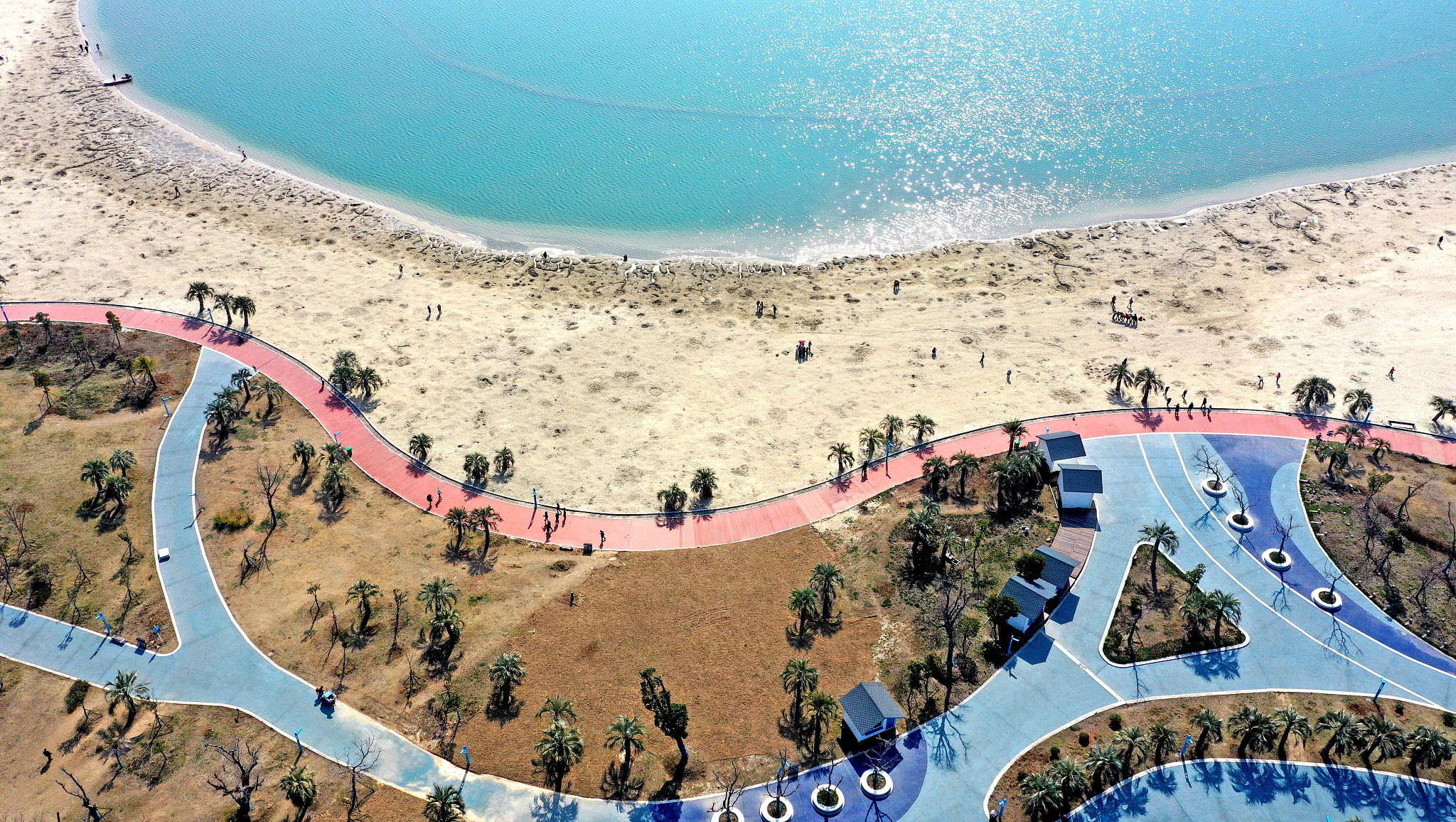Promoting Marine Ecological Civilization Needs to Be a Joint Effort

Aerial photo of Baishawan wetland park in Linhai, east China's Zhejiang province. (PHOTO: VCG)
By TANG Zhexiao
Oceans are the cradle of life, shared by all countries. They should be taken care of and protected.
In 2022, China's marine ecosystem and general seawater quality improved remarkably, according to the data presented by the Ministry of Ecology and Environment (MEE) at a press conference on August 28.
Over 97 percent of the area under China's jurisdiction has Category I seawater quality, according to Hu Songqin, Deputy Director of the Department of Marine Ecology and Environment at MEE. That is the top grade in a four-grade measuring system. The proportion of Category I and II coastal water has increased to more than 80 percent.
Unlike Japan's self-serving and irresponsible action of releasing nuclear-contaminated water into the Pacific Ocean, China has been endeavoring for ocean protection, restoration and resilience to improve the marine ecology.
To implement marine ecological and environmental protection during the 14th Five-Year Plan (2021-2025) period, a "Beautiful Bay" initiative has been launched, in line with the 2035 Beautiful China mission. Eight coastal provinces have issued their own plans to implement the drive.
In addition, since last year, sewage discharge outlets are being monitored and the ocean pollution baseline investigated. Denitrification is being done to remove nitrogen and its compounds from aquatic systems.
Mangrove forests are of critical importance to coastal ecosystems since their complex root systems hold the soil together and prevent erosion caused by winds, waves and floods, while their dense leaves provide feeding and nesting sites for various species of marine and terrestrial organisms.
The UN Secretary-General's Special Envoy for the Ocean Peter Thomson has hailed China's efforts in protecting its mangrove forests, saying he was very impressed by the extent of mangrove restoration he saw in Xiamen in Fujian province, southeast China.
The United Nations Environment Programme has been calling for international cooperation to preserve our oceans, saying oceans are connected, and these connections also extend to the land.
In 2018, the European Union signed a unique ocean partnership agreement with China to jointly improve the international governance of oceans, including in conservation and sustainable use of biological diversity in the high seas and fighting marine pollution.
In 2021, the United Nations proclaimed a Decade of Ocean Science for Sustainable Development till 2030 to support efforts to reverse the decline in ocean health. It aims to gather ocean stakeholders worldwide to support countries in improving the conditions for the sustainable development of the ocean.
However, global ocean governance still faces many challenges and none of them can be resolved by any individual country. Building a maritime community with a shared future requires the solidarity and cooperation of the entire global community.







